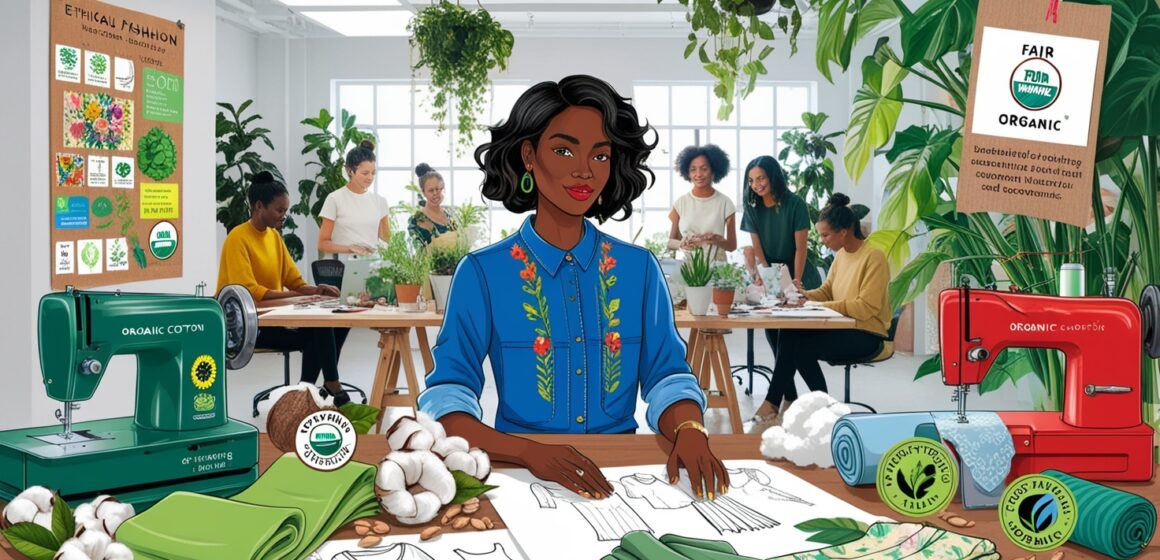The fashion industry, long criticized for its environmental impact and labor practices, is undergoing a significant transformation. Ethical fashion, which prioritizes sustainability, fair labor, and transparency, is becoming a cornerstone for modern entrepreneurs. Building a business around these values not only addresses critical global challenges but also resonates with a growing consumer base that demands responsibility from brands.
Understanding Ethical Fashion
Ethical fashion goes beyond creating beautiful garments. It encompasses practices that prioritize:
- Sustainability:
- Using eco-friendly materials, reducing waste, and minimizing carbon footprints.
- Fair Labor Practices:
- Ensuring workers are paid fair wages, work in safe conditions, and are treated with dignity.
- Transparency:
- Providing clear information about sourcing, production, and supply chains.
- Animal Welfare:
- Avoiding the use of animal products or ensuring humane treatment where applicable.
Why Ethical Fashion Matters
- Environmental Impact:
- The fashion industry is one of the largest polluters globally. Ethical practices can significantly reduce water usage, waste, and emissions.
- Social Responsibility:
- Ethical fashion supports communities by providing fair wages and safe working environments, especially in developing countries.
- Consumer Demand:
- Modern consumers, particularly millennials and Gen Z, are willing to pay a premium for brands that align with their values.
- Regulatory Trends:
- Governments are increasingly mandating sustainable practices, making ethical fashion a proactive business strategy.
Steps to Build an Ethical Fashion Brand
- Define Your Values:
- Determine the core principles that will guide your brand, such as sustainability, inclusivity, or innovation.
- Source Responsibly:
- Partner with suppliers who meet ethical standards and prioritize sustainable materials like organic cotton, recycled fabrics, or plant-based alternatives.
- Adopt Sustainable Practices:
- Implement eco-friendly production processes, reduce packaging waste, and embrace circular fashion by encouraging recycling or resale.
- Ensure Fair Labor:
- Work with certified factories or cooperatives that guarantee fair wages and humane working conditions.
- Be Transparent:
- Share detailed information about your supply chain, production methods, and sustainability efforts with your customers.
- Engage with the Community:
- Collaborate with ethical fashion organizations, participate in sustainability events, and use your platform to raise awareness.
Marketing an Ethical Fashion Brand
- Tell Your Story:
- Highlight your brand’s mission and the positive impact of your practices through compelling narratives.
- Leverage Social Media:
- Use platforms like Instagram and TikTok to showcase your products, share behind-the-scenes content, and connect with ethical fashion communities.
- Collaborate with Influencers:
- Partner with influencers who advocate for sustainability to expand your reach and credibility.
- Certifications and Labels:
- Obtain recognized certifications like Fair Trade, GOTS (Global Organic Textile Standard), or PETA-approved vegan to build trust.
- Engage in Transparency:
- Regularly update your audience on your progress and challenges in achieving your ethical goals.
Challenges in Ethical Fashion
- Higher Costs:
- Sustainable materials and ethical labor practices often come with increased expenses.
- Scalability:
- Expanding operations while maintaining ethical standards can be challenging.
- Consumer Awareness:
- Educating consumers about the importance of ethical fashion is essential but time-intensive.
- Greenwashing Risks:
- Misleading claims about sustainability can damage credibility; ensure all statements are backed by evidence.
The Future of Ethical Fashion
The ethical fashion movement is more than a trend; it’s a shift toward a more responsible industry. As technology advances, innovations like biodegradable fabrics, AI-driven supply chain transparency, and waterless dyeing techniques are making ethical practices more accessible and cost-effective. Entrepreneurs who embrace these changes today are poised to lead the fashion industry tomorrow.
Conclusion
Building an ethical fashion brand is not just about creating products—it’s about making a difference. By integrating sustainability, fair labor, and transparency into your business model, you can create a brand that stands out for its values and impact. In doing so, you not only contribute to a better world but also meet the expectations of a growing market of conscientious consumers. Ethical fashion is the future, and businesses that prioritize values will shape the industry for years to come.




Leave a Reply